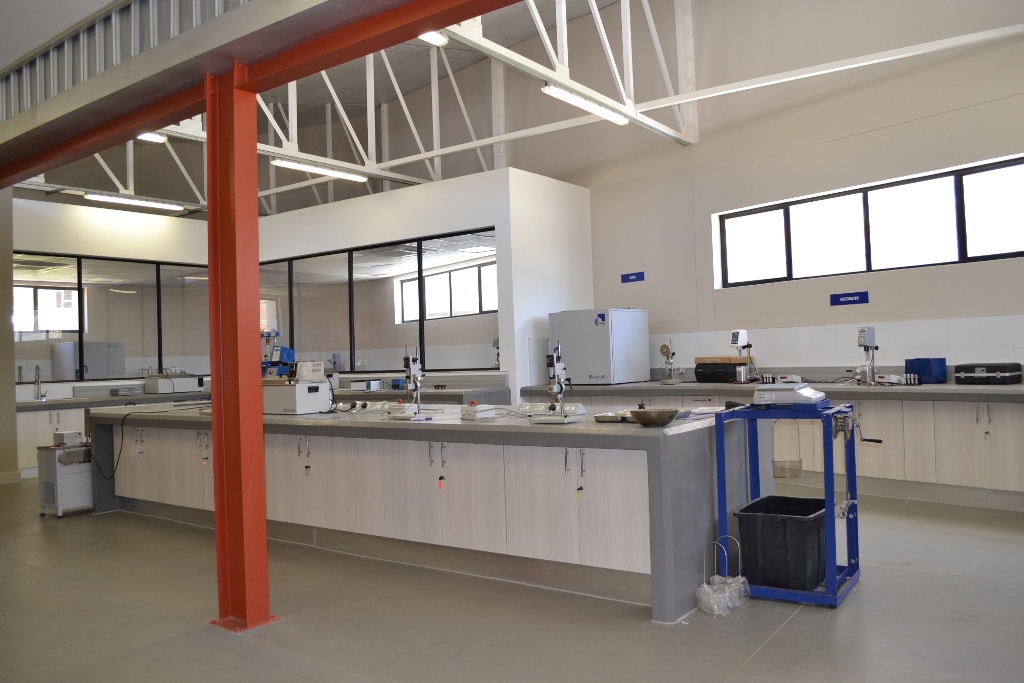Bitumen, which is durable and completely recyclable, holds the world’s streets together and is also vital to many different construction and infrastructure projects.
The R7m centre, completed last year, was sparked by the University’s Civil Engineering Department’s long-term vision to create the Eastern Cape’s first academic centre of excellence for Civil Engineering materials.

“The establishment of the new Bitumen Laboratory, together with the Department’s existing Soils and Concrete Laboratory facilities, takes us a step closer to achieving this vision,” said NMMU Civil Engineering Head of Department Vincent Danoher.
The new lab will serve the region by providing teaching and learning facilities for Civil Engineering students, introducing them to leading-edge quality and performance-testing methods used in the field, and providing hands-on use of the latest equipment. It will also provide research and development opportunities, to attract master’s and doctoral students in the materials field; and pave the way for engagement with the Civil Engineering industry, to tap into potential commercialisation and training initiatives, complementing existing industry facilities.
The Bitumen Laboratory has already been a catalyst for postgraduate research, with an MSc student from NMMU’s Chemistry Department investigating the use of rubber-modified bitumen.
Danoher said discussions with local and national industry representatives in the materials field, including the South African National Roads Agency Limited (SANRAL), the South African Bitumen Association (SABITA), commercial supplier Much Asphalt and the Council for Industrial and Scientific Research (CSIR), indicated the important need for such a centre.
Funding for this project was made available through a Department of Higher Education (DHET) infrastructure and efficiency funding grant.